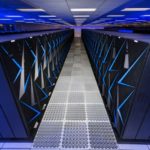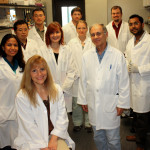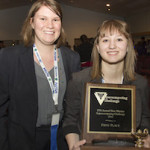16 March 2023 — Barcelona — The Barcelona Supercomputing Center is working towards the creation of digital twins that can virtually represent cell-level systems to computationally predict the response of potential treatments. These cell-level simulations can be personalised with patient-specific data to capture individuals´ genetic and environmental influences that provide a deeper understanding of the […]
LLNL Scientists Use Sierra Supercomputer to Develop Cancer Model
Jan. 10, 2022 — Lawrence Livermore National Laboratory researchers and a multi-institutional team of scientists have developed a highly detailed, machine learning-backed multiscale model revealing the importance of lipids to the signaling dynamics of RAS, a family of proteins whose mutations are linked to numerous cancers. The team simulated a one micron-by-one micron patch on […]
SGI Powers Cancer Research at AbbVie Stemcentrx
“Our new SGI UV 300 capabilities will help us achieve major milestones sooner than predicted,” said Albert Park, senior director, Bioinformatics, AbbVie Stemcentrx. “The new SGI system is able to process larger quantities of data faster than ever and provides us with ease of management. We see significant advantages of having a single OS control our systems, including ease of use, lower power consumption and increased compute power. There’s no price tag for technology that can help discover a drug that will save millions of lives.”
Podcast: TACC Supercomputers Power Cancer Discovery
In this podcast, Karen Vasquez and Albino Bacolla of the University of Texas at Austin describe how TACC supercomputers have helped scientists find a surprising link between cross-shaped pieces of DNA and human cancer.
Video: Teaching Machines to Diagnose Cancer
In this PBS video, Hari Sreenivasan reports on how tech firms are investing in the next generation of intelligent computer programs and in what ways the technology still lags behind humans. The report also takes a closer look at teaching machines to diagnose cancer.
Supercomputing Challenge Winners Examine Nanotech for Fighting Cancer
This week LANL announced that high school students Meghan Hill and Katelynn James took the top prize in the 25th New Mexico Supercomputing Challenge. Their research project, “Using Concentrated Heat Systems to Shock the P53 Protein to Direct Cancer into Apoptosis.” posited that using nanotechnology robots can kill cancer cells without damaging healthy cells.







